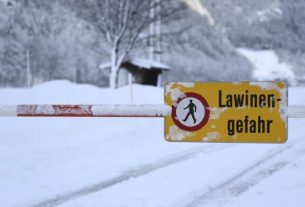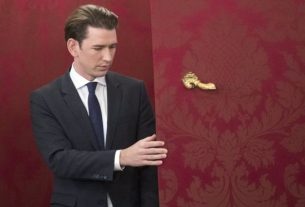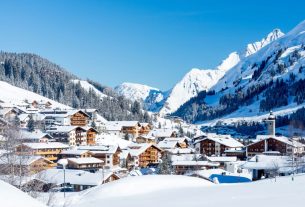BRUSSELS: Iran continues to enrich uranium well beyond the needs for commercial nuclear use despite U.N. pressure to stop it, IAEA chief Rafael Grossi said on Monday, adding he wanted to visit Tehran next month for the first time in a year to end the “drifting apart.”
Speaking to Reuters after he briefed EU foreign ministers on the subject, the head of the U.N.’s nuclear watchdog said that while the pace of uranium enrichment had slowed slightly since the end of last year, Iran was still enriching at an elevated rate of around 7 kg of uranium per month to 60% purity.
Enrichment to 60% brings uranium close to weapons grade and is not necessary for commercial use in nuclear power production. Iran denies seeking nuclear weapons, but no other state has enriched to that level without producing them.
Under a defunct 2015 agreement with world powers, Iran can enrich uranium only to 3.67%. After then-President Donald Trump pulled the U.S. out of that deal in 2018 and re-imposed sanctions, Iran also moved well beyond the deal’s nuclear restrictions.
Between June and November last year, Iran slowed the enrichment to 3 kg per month but returned to a rate of 9 kg at the end of the year, the International Atomic Energy Agency previously reported.
The increase came soon after Tehran barred a third of the IAEA’s core inspections team, including the most experienced, from taking part in agreed monitoring of the enrichment process.
“This slowdown, speedup thing is like a cycle that for me does not alter the fundamental trend, which is a trend of constant increase in inventory of highly enriched uranium,” Grossi said.
A spokesperson for Iran’s Atomic Energy Organization was not immediately available for comment.
The IAEA warned at the end of 2023 that Tehran had enough material to make three nuclear bombs if it enriches the material now at 60% to beyond 60%.
“There is a concerning rhetoric, you may have heard high officials in Iran saying they have all the elements for a nuclear weapon lately,” Grossi said.
He said the concern was all the higher because of what he termed current circumstances in the Middle East, a reference to tensions over Israel’s war with Iran-backed Hamas in Gaza.
“We seem to be drifting apart. … Iran says they are not getting incentives from the West, but I find this logic very complicated to understand because they should work with us. … It should never be contingent on economic or other incentives.”
Before visiting Tehran, Grossi is to fly to Moscow to meet Russian President Vladimir Putin to discuss Iran and the Middle East, along with Ukraine.
Russia is a signatory of the 2015 deal, known as the Joint Comprehensive Plan of Action, alongside the U.S., China, France, Britain and Germany. The deal lifted sanctions on Iran in exchange for curbs on its nuclear activities.
“Russia has a role to play on Iran. It has played a role in the past as a JCPOA country and in the current circumstances where JCPOA is all but disintegrated, something must fill the void,” he said.__VOA News





